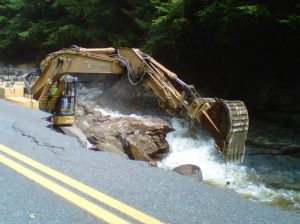
Across the country, skilled professionals build and renovate countless future spaces. If you want to join their ranks by becoming a licensed general contractor in Boston, MA, you’ll need to undergo a number of challenges to make it happen. These companies don’t just slap together projects like store-bought furniture. They have to deliver dependable results for every client, and they need to show that they have the expertise to do it.
So, what’s the first step? You’ll need to decide what kind of license you need to do the type of work you desire. Usually, your license class correlates to the value of the projects you can take on. For example, a Class A contractor may be able to handle full-scale commercial construction, while a Class C company might be limited to a few thousand dollars’ worth of work at a time.
After you’ve picked any specialization you may have, you’ll need to name and register your company. Depending on local authorities, this may involve choices about business structure and management. Both this and the first step are likely to include required fees.
Next comes the tough part: passing the contractor’s examination and submitting the necessary documents for your license. These could include purchasing insurance and passing a background check. Contact the International Code Council (ICC) to learn about specific requirements for examinations in the local area.





